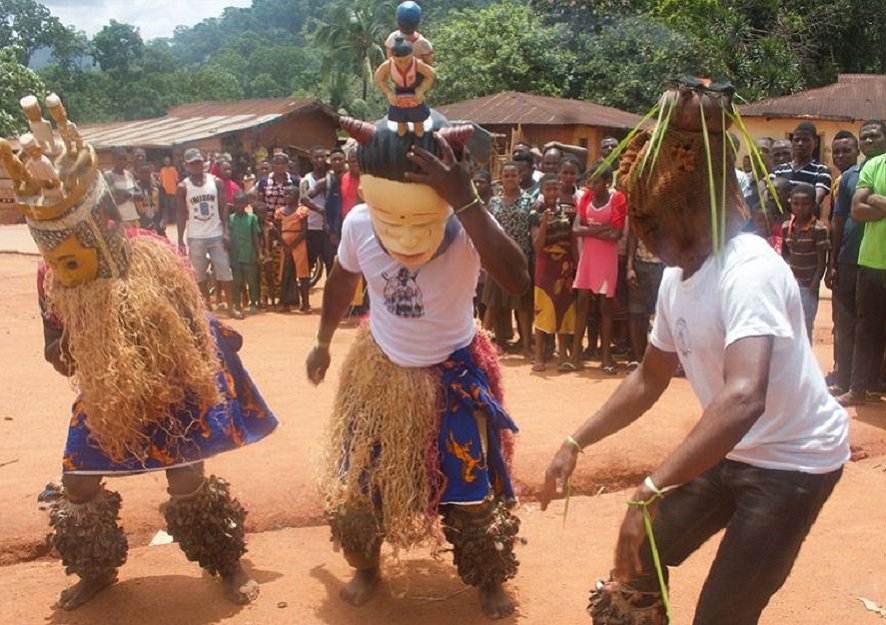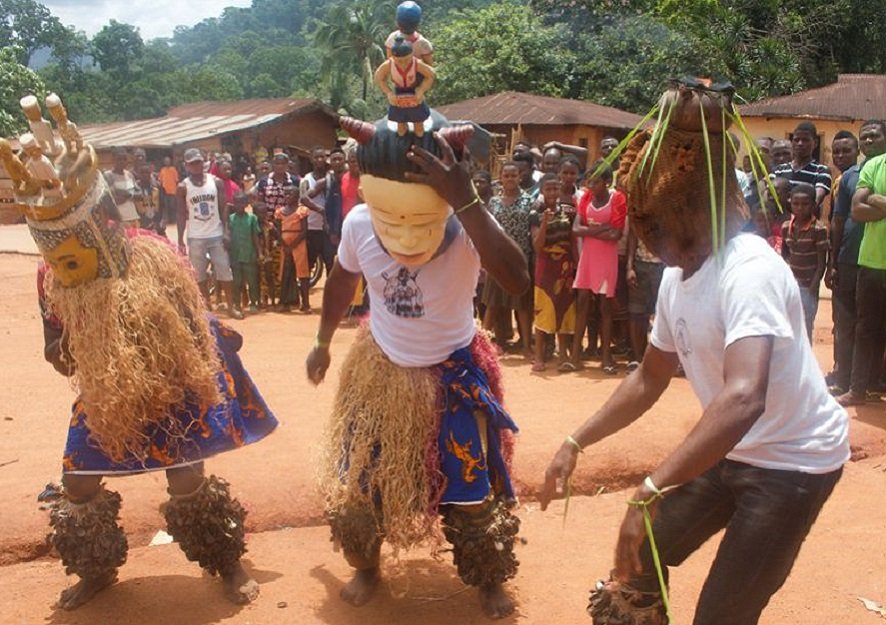
Generally speaking, the major difference between a man and woman across the globe is their sexes but in Ubang, a rural community in southern Nigeria, it is more than that. In the farming-predominant valley community located between two mountains in Obudu Local Government Area, Cross River State, Nigeria, men and women speak different languages and they understand each other perfectly.
Having an approximate population of five thousand persons, inhabitants say the words that form the two languages were given by God, and no one language is superior to the other.
Boys grow up speaking the female language, probably because of the quality time being spent with their mothers in their childhood days, but by the age of 10, they should be speaking the language of the men.
“There is a stage the male will reach and he discovers he is not using his rightful language. Nobody will tell him he should change to the male language,” Chief Oliver Ibang said.
“When he starts speaking the men language, you know the maturity is coming into him.”
In Ubang made up of three villages namely, Okwersing, Ofambe, and Okiro, Chief Ibang said that if a child does not move to the correct language by a certain age, they are considered “abnormal.”
But, what brings about this very uniqueness in language that they pride in?
Chief Ibang explained: “God created Adam and Eve and they were Ubang people.”
He said the plan of God was to allocate each ethnic group two languages. However, after creating the two languages for the Ubang, he found that there were not enough languages to go around. So he stopped right there.
“That’s why Ubang has the benefit of two languages – we are different from other people in the world,” he explained.
Ogbe Sylvanus Odobi, an elder from the community had corroborated the cultural fact described by Chief Ibang earlier.
Odobi told Niger Delta that God descended on one of the mountains of Okiro village and stood on the rock at the top of the mountain to distribute languages.
“He started with us (Ubang) since it is our mountain that He stood to distribute the languages and His footprint is still etched on that rock till today,” Odobi said.
“It was after God had distributed the languages to the men and women of Ubang, that He discovered that the languages would not go round the communities if He continued to give each for both sexes, and He decided to give the other communities one language for both sexes.”
Words used by the inhabitants till date are completely different, do not conform, and do not have the same alphabets.
Interestingly for instance, men call stone ‘okai’ while women call it ‘koka.’ Men call water ‘Amie’ while women call it ‘Banu’. And yam is called ‘iri’ by men but it’s ‘ketung’ for women.
Anthropologist Chi Chi Undie, who has studied the community, explained their language difference from an anthropological background.
“This is a dual-sex culture,” she told BBC.
“Men and women operate in almost two separate spheres. It’s like they’re in separate worlds, but sometimes those worlds come together and you see that pattern in the language as well.”
“I call it a theory but it’s weak.”
“Because in Nigeria there are lots of dual-sex systems and yet we don’t have this kind of language culture.”
The Ubang community, which is mostly inhabited by Christians with an interest in cocoa farming, has no plans of merging the two languages until God comes down to direct otherwise, the elders say.
These elders are also optimistic that the languages will survive despite the rise in the use of the English language amongst the community’s young people who are expected to pass their mother tongues down to their children.
In schools in Ubang, students are forced to speak English instead of their native languages. The fear is that Ubang languages might go into extinction with time, just like some indigenous African languages have been.
Recent studies have shown a steady decline in the use of indigenous African languages, and there are stinging fears that most African countries will soon speak English language as a first, and perhaps the only language, consequently leading to a loss of culture, origin, and values.
Human rights experts have advised countries to “recognize, protect and promote indigenous languages through legislation, policies and other strategies in full cooperation with indigenous peoples.”

